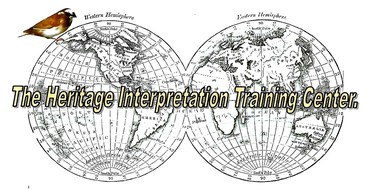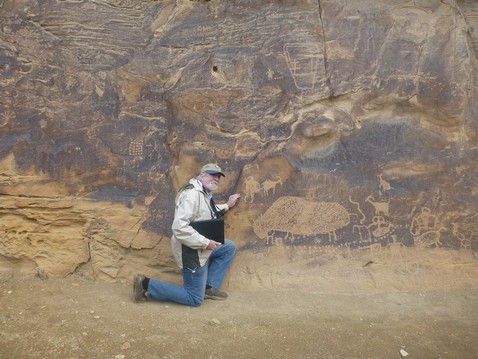John Veverka & Associates
Main menu:
- Home Page
- Our Range of Services
- Interpretive Coaching
- Interpretive Planning
- Interpretive Plan Outline
- Interpretive Training
- John Veverka Resume
- NEW Advanced Interp. Text Book
- InterpNEWS
- Library
- JVA NEWS, Courses and Updates
- Certificates
- Planning/Design of Interpretive Panels
- Interpretive Writing
- Interpretive Writing Course
- Interpretive Trails Course
- Interpretive Panels Course
- Introduction to Heritage Interpretation Course
- Interpretive Planning & Design of Marketing Brochures Course
- Training for Interp. Trainers
- Interpretive Exhibits Course
- Interpretive Master Planning Course
- Interpretive Planning for Scenic Byways.
- Critiquing and Coaching Interpretive Staff
- Advanced Interpretive Planning
- Interpretive Training Center Course Catalogue
- Interp. for International Visitors course.
- Interpretive Exhibits Evaluation
- Interp. Center Feasibility Analysis Course.
- Interp. for Commercial Tour Providers
- Interpretive Researchers Guide for Visitor Studies
- Interp. Planning for Historic Homes
- Heritage Interpretation Training Center
- Interpretive Planning for Botanical Gardens
- An introduction to planning and presenting live interpretive programs and tours for Museum/Heritage Site Docents and Volunteers.
- Developing Marketing Plans for Heritage & Tourism Sites and Attractions
- Interpretation Book Store
- Heritage Interpretation Resource Center
- Interpretive Planning for Historic Farms
- Developing Successful Partnerships
- Developing Interpretive Outreach Programs
- Community Interpretation Planning
- Interpreting Gravestones and Historic Cemeteries
- Using Interpretation to Accomplish Management Objectives.
- An Interpreters Guide for Survival Economics.
- Innovative Strategies for Interpretive Media and Services Planning.
- A Curators Guide for Developing Gallery Tours.
- Advanced Interpretive Writing - Technical Publications
- Advanced Interpretive Services for Managers, Supervisors, Team Leaders and Sr. Staff.
- Advanced Interpretation for Chiefs of Interp. - Interpretive Managers - Regional Interp. Specialists
- Interpreting Critical Issues.
- Developing Commercial Interpretation for Resorts, Cruise Ships, Campgrounds and Tourism Attractions.
- Planning and developing a new commercial tour guiding business.
- Interpretive Evaluation, Visitor Studies and Site Assessment Center
- The Center for Interpretive Planning Advancement & Excellence.
- Developing Requests for Proposals (RFPs)
- Planning and Facilitating Focus Workshops
- Planning for Interpretive Experiences
- 40 Years a Heritage Interpreter
- Interpretive Techniques - The Rest of the Story Course
- Certified Professional Interpretive Planner Certificate
- Certified Professional Interpretive Program
- Certified Professional Interpretive Writer certificate program.
- Visitor motives for attending interpretive programs.
- Exhibit Rehab Course
- Developing Training Workbooks & Manuals
- Planning for Railroad Museums and Sites.
- Climate Change Interpretation Course.
- When there's nothing left but the story - interp. storytelling.
- Interpreting Legends Myths and Fables
- InterpSHARE - Seminars 2022
- Interpreting Invasive Species
- Interpretiing Edible Insects
- Interpretaive Planning for Climate Change
- HITC Climate Crisis Resource Center
- PUP Members Only
- Starting a new Interp Consulting Business
- Panels 4 Week Course
- Interpretive Writing - 4 Week Course
- Marketing - 4 Week Course
- Intro to Interpretation - 4 Week Course
- Interp Climate Change - 4 Week Course
- Exhibit Rehab 4-Week Course
- Level 1
- Johns Interpreters Blog
- John Interpreters Blog 2
Innovative Strategies for Interpretive Media and Services Planning.

Heritage Interpretation Training Center
Innovative Strategies in Interpretive Media and Services Planning -
New Conceptual Tools for Today's Interpretive Planners.

Markets on One, Mass Customization, Experiential Planning
and the Psychology of Visitor Interpretive Program Topic/Mode Preferences. If you're not using these in your interpretive media/services planning and development you're way behind the creativity curve and could be losing new visitors as well. Welcome to the new millennium where "one size does NOT fit all".
Eleven Units, 3 CEU Credits
Course Tuition $350.00
There are two psychological road bumps that keep interpretive planners from thinking outside of the box. 1. "The way we have always done it - so why change it? and 2. The way that last person who had this job did it - so let's keep doing it that way. So first, we need to can that and begin to think as new millennium planners. Incorporating these new (not so new to the world - but new to interpretive planners) ideas for developing more creative, diverse and marketable interpretive programs, media and services is critical for interpretive planners and the sites we are doing the interpretive planning for. Among its benefits are increasing new visitors, increasing visitor numbers, and increasing repeat visitation to a site, museum, park or related heritage site. Be brave - try something new.
Check out our YouTube video about this course: https://www.youtube.com/watch?v=WTnH3769oU8
About the Instructor: Prof. John Veverka
Nine Mile Canyon, UT - Interpretive Planning.
- B.S and M.S in Heritage Interpretation - The Ohio State University
- Ph.D. program in Interpretation at Michigan State University.
- Adjunct Professor Heritage Interpretation (summer heritage tourism institutes) North Carolina State University,
- New York State University. Adjunct Professor, Heritage Tourism Institute.
- NAI Certified Interpretive Planner and Trainer
- NAI Fellow
- Certified Professional Heritage Interpreter (Canada).
- Author of several interpretive planning/training college text books.
- Publisher of InterpNEWS - the International Heritage Interpretation e-Magazine.
- 40 years of interpretive planning, training and writing experience.
- Sr. Instructor, Kansas State University - Global Campus (Interpretive Planning).
How does e-LIVE work? Our e-LIVE courses are limited to 10 participants at one time, to allow for maximum interaction with the course instructor. Once one participant completes the course another participant can be added.
- You'll be given course content to read and interact with for each unit.
- JVA will provide you with reading assignments, text book and reference articles as part of the course that you keep for your library.
- You'll be given a assignment for each unit which you'll send to John for review, comments and coaching. You'll be able to talk with John about each assignment via SKYPE, or by e-mail or phone. Thus the e-LIVE opportunity. John will be your instructor and interpretive coach who you can talk with at any time about your assignments. Remember that John is in Michigan (Eastern Time Zone), so it's best to e-mail John to set up a time to chat.
- When you've completed each course unit you'll be sent the next unit for the course. Again, you'll be given new assignments for that unit to submit to John for review, comments and coaching as needed.
- When you've completed the eleven units you'll be awarded a Certificate of Completion and 3 CEU (Continuing Education Unit) credits.
Additionally, you can work on assignment for actual planning projects you may be working on - museum tours, marketing materials or other interpretive trail projects. That is the benefit of e-LIVE - we're flexible in designing the course to meet your real-world needs.
The estimated completion time of the course is about 30 hours - and you can work at your own pace.
The Courses Eleven Units:
Unit one - The model of Interpretive Planning and its relationship to innovative planning strategies.
Unit two - Concepts from the Experience Economy. Experience Realms related to delivery techniques related to experience preferences for your diversity of market groups.
Unit three- concepts from Markets of One. Note: There is no such thing as a "general audience". You have a very specific market mix unique to your site, facility or attraction.
Unit four - Mass Customization. How to turn a single themed trail or tour into 16 or more different experiences that your visitors can select from by season x topic x knowledge level x language.
Unit five - conducting your experience inventory and needs assessment.
Unit six - collating your current interpretive experiences to with your existing visitors.
Unit seven - What new experiences can you create that will, in turn, create new market groups interested in the new experiences you could offer?
Unit eight - Visitor surveys - research in visitor preferences for interpretive program topics and media preferences by gender and age groups.
Unit nine - Developing your individual park/museum/sites innovation and experiential assessment and future experience development strategy and rational.
Unit ten - Develop one new experience or mass customization priority plan for a current interpretive service or self-guiding media at your site right now - just to get things started.
Unit eleven - how will you market this new opportunity and how will you track/evaluate its results?
If you would like more details on this advanced course please feel free to contact me. If you would like to enroll in this course, first contact me for a Registration Form. Then you can return to this page, click on the Pay Now button below, and off we go to get you started. Course tuition is: $350.00 USD.
Cheers,
Prof. John Veverka
jvainterp@aol.com
SKYPE: jvainterp@aol.com